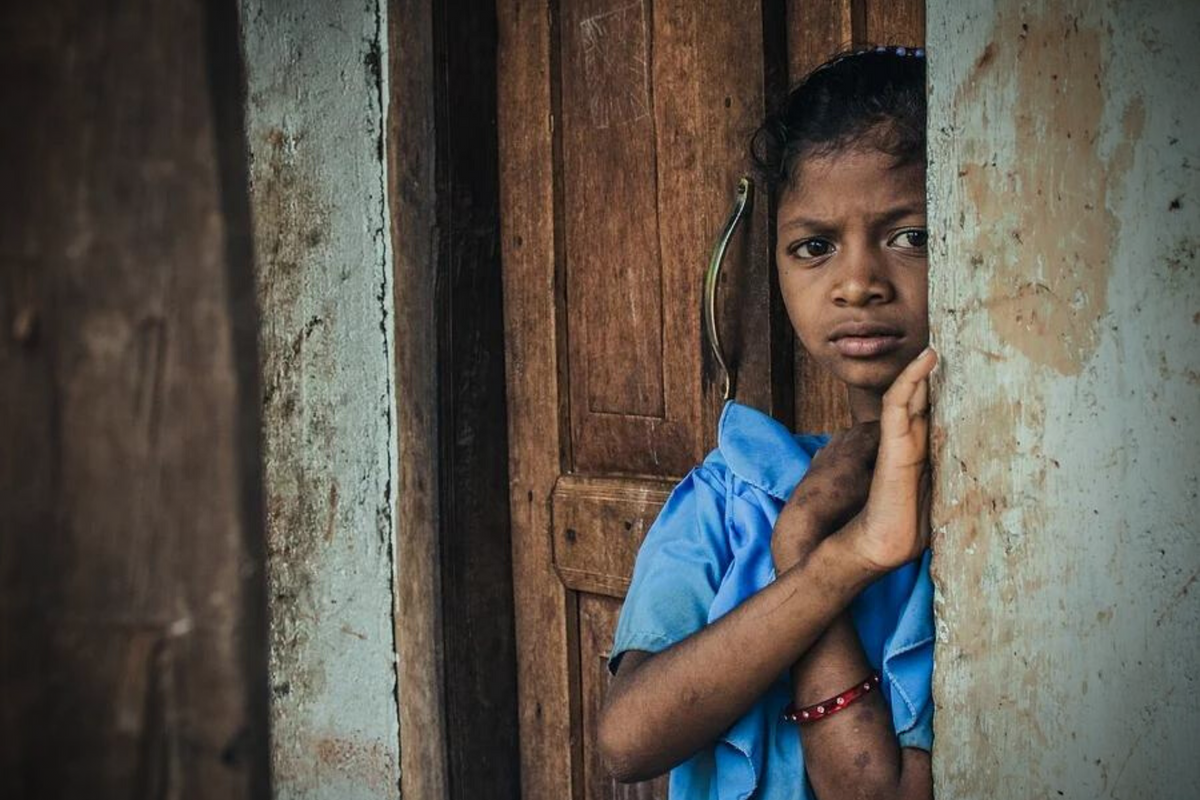Indian Supreme Court Recognizes Prostitution as a ‘Profession,’ Attempts Reform
The order aims to improve the treatment of ‘sex workers’ by law enforcement, but is based on a false notion of ‘consent’

A three-judge Bench led by Justice L. Nageswara Rao passed an order to recognize ‘sex work’ as a ‘profession, using special powers under Article 142 of the Constitution. Based on the order, the police should “neither interfere nor take criminal action against adult and consenting sex workers” while raiding a brothel. ‘Voluntary’ prostitution is already legal in India, and running brothels remained outlawed. The order claims to safeguard the rights of individual women, provided they are of legal age and claim to ‘consent’ to their participation in the sex industry.
The three broad aspects of discussion in the Supreme Court included prevention of trafficking, rehabilitation of ‘sex workers’ who wish to leave prostitution, and providing safe conditions. The bench directed the Union Government to respond to their recommendations within a period of six weeks.
The following are some of the recommendations by the bench:
- ‘Sex workers’ are entitled to equal protection of the law. Criminal law must apply equally in all cases, on the basis of 'age' and 'consent'.
- Measures that the sex workers employ for their health and safety, like using condoms should not be construed as offenses or seen as evidence of the commission of an offense.
- When a ‘sex worker’ makes a complaint of criminal/sexual/any other type of offense, the police must take it seriously and act in accordance with the law.
- No child of a sex worker should be separated from the mother merely on the ground that she is in the sex trade.
Prostitution is approximately an $8-billion industry in India, with more than 2 million prostitutes and 275,000 brothels. There are as many as 10 million women caught in the sex trade including many more who haven’t been accounted for. While there may be several women who claim to do it by ‘choice’, it is almost impossible to make sense of the word, let alone know how old a woman truly is. The Union Government — represented by additional solicitor general (ASG) Jayant Sud raised the issue of impossibility of determining consent, and therefore warned the bench of the consequence of this ambiguity. But it was shot down on grounds that the police treat ‘sex workers’ poorly, and those who operate out of ‘consent’ shouldn’t be treated as criminals.
“You read the report. It takes into account the ground reality of how sex workers are treated by police. It cannot be that they are treated differently from other criminals,” the bench said.
Bench order attempts to issue reforms for better treatment of women in prostitution
India is known for its rank misogyny, including one of the lowest criminal conviction rates of male violence against women. Police have a reputation for being unforgiving when treating women who knock at the doors of the criminal justice system. Cases of custodial rapes by police officers and poor treatment of female offenders are an open secret. The custodial rapes of Mathura and Padmini by police officers in Maharashtra and Tamil Nadu respectively are just two of the numerous recent example. Corruption within the Indian system needs a special mention in the subject because there isn’t a crime the police won’t bury in exchange for a wad of cash.
It is admirable that the bench has ordered police officers to finally take complaints from ‘sex workers’ of abuse faced during their ‘work’ seriously., But given the extent of contempt Indian society holds for women, especially those engaged in a sexually abusive industry, it is wishful thinking.
Just last week, a Division Bench of the Delhi High Court couldn’t come to a consensus on whether rape by a husband could be considered a crime. The split verdict left the law unchanged, moving the issue to the Supreme Court. If this is the case for women – even influential ones – one can only weep at the prospect of how this order is going to pan out.
The Supreme Court’s order also included explicit instructions to not remove the child of a ‘sex worker’ from her simply because she is in the sex industry. While an order to not take the child away from the mother is noble, it is riddled with complications of who exercises rights over said child. In almost all cases, women don’t operate on their own; there is often a husband or an uncle who decides her fate. Including her ‘consent’. Often, the cycle is endless. Children born to ‘sex workers’ get trafficked or forced into the trade even if mothers go out of their way to stop that from happening. While none of these women want their children to go into the sex trade, only a few succeed in helping them escape.
Another worthy recommendation by the Court is to safeguard the identities of women who do ‘sex work’. They advised the media to take “utmost care not to reveal the identities of sex workers, during arrest, raid and rescue operations, whether as victims or accused and not to publish or telecast any photos that would result in disclosure of such identities.” This could provide additional exit opportunities to women wishing to leave India’s sex trade, many of whom have been publicly shamed. Yet, It remains to be seen how effectively this could be achieved in a country where the media thrives on sensationalizing the plight of women.
Further institutionalization of ‘sex work’ is likely to lead to increases in trafficking and abuse
Most media outlets in India claim that prostitution, once treated like other professions, will give women more agency and legitimacy of ‘work,’ it echoing the views of many pro-prostitution organizations and activists. There has, however, been no discussion on whether this recognition would embolden men to exploit women even further.
Johns (sex buyers) commonly insist on sexual intercourse without a condom. One prostituted woman in India shares her harrowing experience:
“I can’t turn down men who refuse to wear a condom because I need the money to care for my children. I got HIV when I was 14 and had unprotected sex with 3,000 customers. Many of the prostitutes’ customers are men from the countryside, some of whom caught AIDS and returned home and gave it to their wives. Many others were students who passed the disease on to their wives when they got married.”
Now that the industry is legally recognized, and with the demand that’s about to boom even more, women from economically impoverished parts of India aren’t going to have a choice in the matter. In many South Asian countries, pimps put minor girls on a high dosage of Oradexon (commonly known as cow fattening drug). It is meant to treat inflammation and allergies in humans, but is predominantly used by farmers to fatten their livestock. This makes a child’s body appear curvaceous due to fat distribution, making them appear older to help avoid age of consent laws.
The order isn’t clear in exactly how it impacts the legal status of prostitution, which was never illegal in India. However, it does appear to aim to further entrench the sex industry into the Indian economy by legitimizing the buying and selling of women for sex.
In other countries that tried this approach, there was an exponential increase in demand as more men become interested in buying sex. To meet the higher demand, an increased number of women and girls are trafficked into prostitution. In a research conducted by Cho, Dreher and Neumayer, data was analyzed from 116 countries on the effect of legalized prostitution on human trafficking inflows. It found that there was a direct increase in countries that formally accepted prostitution. As the market is flooded, women are expected to perform extreme or dangerous sex acts, more frequently, but get paid a lot less.
Despite good intentions, outcomes of bench order will likely do little to help victims of India’s sex industry
Due to certain reservations raised by the additional solicitor general (ASG) Jayant Sud the bench’s proposal could not be incorporated into legislation. It remains to be seen what the Parliament is going to make of these recommendations. Regardless of the outcome, the only way to truly combat the gross sexual exploitation of women in India is to adopt an abolitionist approach. And if painful stories of ex-prostitutes are anything to go by, it must act as a wake-up call for stakeholders seeking to further push women down this horror show.
An excerpt from the book ‘Paid For: My Journey Through Prostitution’ by Rachel Moran perfectly encapsulates my fears of these seemingly progressive political developments:
“The assumption of choice leads to the conclusion of consent, but choice and consent are erroneous concepts here. Their invalidity rests on the fact that a woman’s compliance in prostitution is a response to circumstances beyond her control, and this produces an environment which prohibits even the possibility of true consent. There is a difference between consent and reluctant submission. As a lawyer and scholar Catharine Mackinnon says ‘…when fear and despair produce acquiescence and acquiescence is taken to mean consent, consent is not a meaningful concept.’”
The generous support of our readers allows 4W to pay our all-female staff and over 50 writers across the globe for original articles and reporting you can’t find anywhere else. Like our work? Become a monthly donor!
Enter your email below to sign in or become a 4W member and join the conversation.
(Already did this? Try refreshing the page!)





Comments